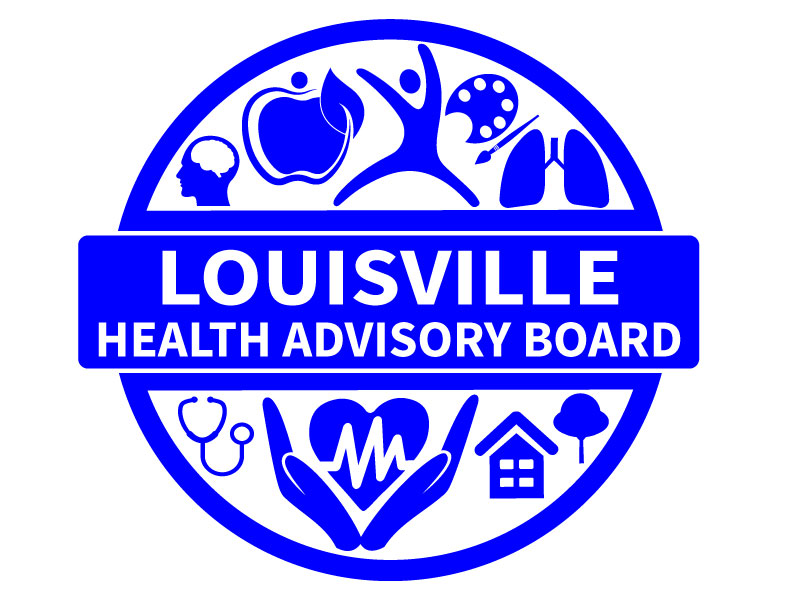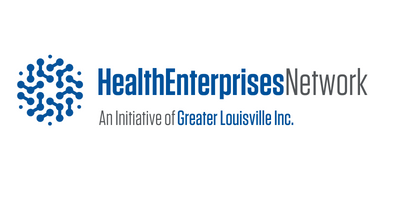 On July 14, the Louisville Health Advisory Board (LHAB) was excited to host its first-ever virtual quarterly meeting. While the board could not convene in-person due to COVID-19, the discussion was as engaging as ever. Over 70 invested members representing 44 social services, for-profit, and academic organizations with a common mission to improve community health gathered digitally to discuss how the city of Louisville has been affected by the pandemic and racial health inequities.
On July 14, the Louisville Health Advisory Board (LHAB) was excited to host its first-ever virtual quarterly meeting. While the board could not convene in-person due to COVID-19, the discussion was as engaging as ever. Over 70 invested members representing 44 social services, for-profit, and academic organizations with a common mission to improve community health gathered digitally to discuss how the city of Louisville has been affected by the pandemic and racial health inequities.
LHAB Co-chair, Dr. Sarah Moyer, Director of the Louisville Department of Public Health & Wellness, welcomed the group and before transitioning to the first speaker highlighted the statement the LHAB made in response to the recent calls for racial justice. Sent out on Breonna Taylor’s birthday, it recognized the LHAB commitment to moving racial justice forward and the commitment to having racial justice be at the forefront of all we do in the LHAB. She also provided an update on COVID cases in Jefferson County and encouraged everyone to continue adhering to social distancing and wearing masks as effective prevention methods.
To kick off the discussion, the first guest speaker, Vincent James, Chief of Community Building, Louisville Metro Government described the typical 4-month process for the creation of the city budget and explained the financial effect of COVID-19. The 2021 budget was more difficult to construct due to many unknown factors concerning the virus and the federal government’s response, so modifications are likely as information continues to be revealed.
Chief James expanded upon the budget details and noted how future funds are planning to be allocated to public health and community services. He also explained how funds from the CARES Act are being used for coronavirus-related expenses. To find out more about the city budget, click here.
Recognizing the importance of food security as a social determinant of health, the Center for Health Equity plans to dedicate $3.5 million to build a community grocery in West Louisville, which is considered to be a food desert. Additionally, House Bill 129 was passed by the Kentucky Legislature and signed by the governor, adding 45 new permanent positions to the Department of Public Health and Wellness.
While creating a budget in the midst of a pandemic surrounded by uncertainty is a difficult task, Chief James acknowledged how the virus, along with the outcry for social justice has provided an opportunity to examine how resources can be allocated in the future in a more equitable manner.
The second guest speaker, Aja Barber, Community Health Policy & Innovation Administrator and COVID-19 Emergency Response Equity Officer, Louisville Metro Department of Public Health & Wellness, spoke about racial justice and transforming the public health system.
Barber defined health equity as “a community where everyone has a fair and just opportunity to be healthy.” She explained how the dominant health narrative and its perception of what it means to be healthy are grounded in individual choices like exercise and diet (or, in the case of COVID-19, choices like handwashing, mask-wearing, and social distancing).
However, Barber emphasized the importance of understanding that the choices people make are influenced by what choices are available to them. The tree metaphor helps visualize the concept that there must be equitable systems of power allocating appropriate resources to address various root causes in order to improve public health outcomes. Barber then connected this idea with racial justice and how some communities face an unfair concentration of disadvantage. To view her entire slideshow, click here.
At the end of the meeting, Alicia Ariatti, Ariatti Advising, facilitator of the LHAB, shared some updates from the committees. Respiratory Health co-chair Monica Unseld, Director of Community Engagement, Greater Louisville Project, and committee member Michelle King, Executive Administrator and Director of Program Planning at Louisville Metro Air Pollution Control District wrote an op-ed , “People are dying because of systematic racism: We can change” published in the Leo on July 15.
Additionally, the Behavioral Health committee’s virtual Question, Persuade, Refer (QPR) training sessions have been a success, and the license to provide these trainings state-wide has been extended indefinitely amidst the pandemic. You can sign-up for free QPR training here.
Finally, Louisville Health Advisory Board co-chairs Dr. Bryan Loy, Corporate Medical Director, Humana and Dr. Sarah Moyer, Director of the Louisville Department of Public Health & Wellness, congratulated London Roth on her new position as Humana’s Chief of Staff for the Medicare President for the Northeast Division. As a Population Health Leader for Humana, London has been a part of the LHAB since the beginning and has provided invaluable guidance along the way. London will remain closely connected to the Board until a successor is identified and onboarded, and Alicia Ariatti will continue to provide a high level of support.
We didn’t have time for each of the committees to provide updates, as we usually do, however, below are updates on the work they have been doing this year:
Behavioral Health Committee: Like many in Louisville, our workgroup had to adapt what we do to reduce suicides, in the middle of a pandemic. The primary focus of the workgroup is to provide QPR training (Question, Persuade, Refer) to individuals in our community to give them the tools they need to help a loved one, family member and/or friend who might be suicidal. The workgroup created a process where certified QPR trainers can now provide the training virtually instead of in-person when requested. If you or your organization would like to request the virtual QPR training please submit your application to www.NAMILouisville.org/qpr/.
Respiratory Health Committee: The Respiratory Health Committee is focused on air quality and smoking cessation. The committee is working with the Air Pollution Control District on the priorities that the community set out last year in the APCD community outreach. The report from that outreach will drive the work the committee does around air pollution. In response to COVID-19, Respiratory Health co-chair Monica Unseld, Director of Community Engagement, Greater Louisville Project, and committee member Michelle King, Executive Administrator and Director of Program Planning at Louisville Metro Air Pollution Control District wrote an op-ed , “People are dying because of systematic racism: We can change” published in the Leo on July 15. In addition, the committee is working with Foundation for Healthy Kentucky on lobbying to change state law that restricts cities from enacting their own laws around marketing and sales of tobacco products.
Community Coordination of Care Committee (CCC Committee): The CCC Committee is continuing its focus on increasing food security, housing and transportation resources, this year with an emphasis on housing. At the beginning of the year, the committee worked state-wide on designing a housing program called Respite to Residence to help patients without homes that were discharged from the hospital recover and find housing. A potential respite location has been identified in Louisville, work has started on program design and funding. In addition, the committee has added racial justice and power dynamics to their discussion around all these topics. Recently, the committee hosted Community Health Workers to learn more about what they experience and what needs their clients have. The CCC will use the CHW’s insights to inform all aspects of their work.

Recent Comments